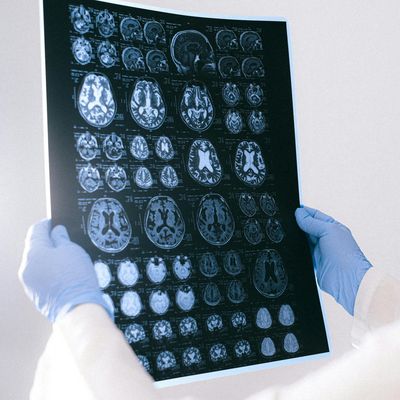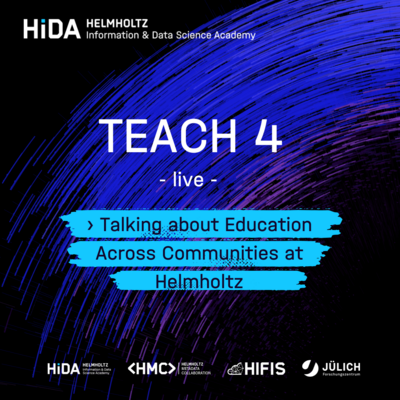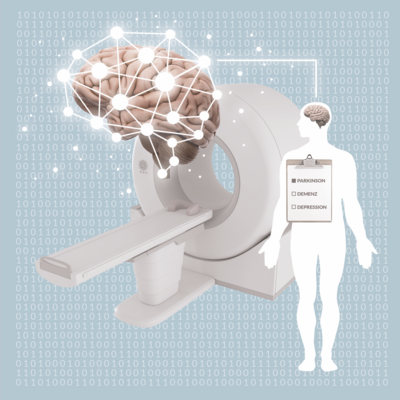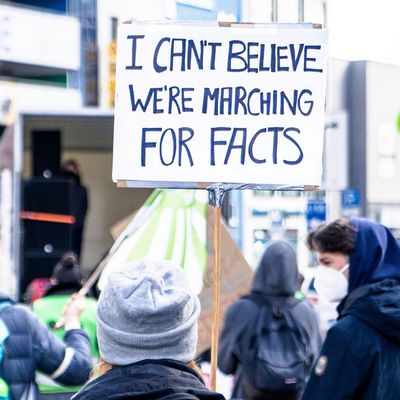A Network for Data Science

Data Science plays a role everywhere in the Helmholtz Association. At the first HIDA Annual Conference on November 30, Helmholtz Data Scientists were able to exchange ideas across centers.
Data science in the Helmholtz Association has many facets: from the six research fields, in which data is acquired and processed in a variety of ways across the centers, to the approximately 200 doctoral students who are now pursuing their doctorates at the six Helmholtz Information & Data Science Schools - data science plays a role everywhere.
With the first HIDA Annual Conference on November 30, the Helmholtz Information & Data Science Academy brought data scientists together for a joint, Helmholtz-wide exchange and contributed with a wide-ranging workshop program and networking activities to make this cross-cutting topic, which is important for all research fields, even more visible. - With success: More than 160 Data Scientists attended the lectures and workshops – and stayed online for an unusually long time of almost four hours.

Neil Chue Hong
Neil Chue Hong
Neil Chue Hong is the founding Director and Principal Investigator of the Software Sustainability Institute, and is based at the University of Edinburgh. He enables research software users and developers to drive the continued improvement and impact of research software.
His current research interests are in community engagement and development, software sustainability and the role and impact of software as a research object.
An opening with sustainability
Neil Chue Hong from the University of Edinburgh was invited to give the keynote address. As founding director and PI of the Software Sustainability Institute there, one focus of his research interests is software sustainability - a point he also made strongly in the keynote.
You can watch his lively talk "Doing Science in the Digital Age (a personal journey as a data explorer)" again here:
The subsequent program of seven workshops, to which all incubator platforms - Helmholtz Imaging HIP, Helmholtz AI, Helmholtz Metadata Collaboration HMC and Helmholtz Federated IT Systems HIFIS - had contributed, offered an interesting overview of the variety of issues that are currently driving Helmholtz data scientists: Shadi Albarqouni from Helmholtz AI spoke about the "Next Generation of AI in Medicine", Silke Gerlich and Mirl Trölsch from HMC informed about the handling of data according to the FAIR principles, while a workshop on science communication dealt with the question of how scientists can effectively blog about their own research.
An overview of the entire program can be found here.
Research to the point in three minutes
In order to bring the participants into conversation with each other about their own professional work, HIDA came up with something new with the Scientific Telegrams: In three-minute videos, participants were able to present their research work and answer questions from other visitors in virtual discussion rooms. Neil Chue Hong was also impressed: "The Virtual Telegram idea was a great reimagining of the poster session."
To bring research topics to the point in a convincing, understandable and descriptive way in a short video is no easy task: A jury consisting of three HIDA Steer members, Stephan Frickenhaus (AWI), Uwe Konrad (HZDR) and Achim Streit (KIT), selected a total of six out of 21 submissions as winners of this task, which was challenging from both a technical and a creative point of view - and thus awarded first, second and third place twice due to the many convincing contributions. The Scientific Telegrams of our six winners can be seen below.
We look forward to next year and the next HIDA Annual Conference and hope that our participants take away as positive a memory from it as Neil Chue Hong did: "I thought that the conference was one of the best I've been to in the last year, both as a speaker and as a participant." Thank you, Neil, and thank you to everyone who participated and made the event such a great success with their contributions!
The award-winning Scientific Telegrams
1. Prize: Lorenz Lamm MUDS, Helmholtz Munich: "Membrane analysis for Cryo-ET"
Lorenz won over the jury with an unusual entry in which he succeeded in presenting such an abstract topic as membrane analysis for Cryo-ET convincingly in feature film style.
1. Prize: Jan Sodoge UFZ: "Combining supervised and unsupervised machine learning to assess drought impacts from newspaper articles"
"Straightforward, but in a classic and understandable way"- that's how the jury judged Jan's contribution, with which he shows how important the collection of publicly available data is for the assessment of man-made natural disasters and extreme weather events.
2. Preis: Edouard Fouché KIT "Bandit-based battery management with cost/privacy tradeoffs"
Edouard hat seine Forschungsfrage zu einem optimierten Batteriemanagement in einen theoretischen Informatikansatz umgewandelt und verwendet das Konzept der „mehrarmigen Banditen“ (die Nicht-Informatiker nur aus Spielkasinos kennen), um die Aufgabe zu lösen.
2. Prize: Yvonne Jenniges MarDATA: "Machine learning to define and characterize 3D ocean regions"
Yvonne's film is about her work on applying machine learning to define and characterize 3D ocean regions. She is also building a web portal to make the data and services available to other researchers - this is what the jury sees as particularly valuable for open and transparent research and awards this together with the successful video.
3. Prize: Jonas Kasmanas UFZ: "The human gut resistome exposed to different diets"
Jonas' research topic revolves around the analysis of the human microbiome and the detection of bioindicators and optimization through machine learning. The film convinced the jury because it explains the workflows in his research very well and in an appealing way.
3. Preis: Shammi More FZJ: "Brain-age prediction: a systematic comparison of machine learning workflows"
Shammi's film is about a systematic comparison of machine learning techniques for predicting brain age. She has succeeded in presenting a complex topic in a multi-layered way in a 3-minute film - while being calm and clear in her explanations.











